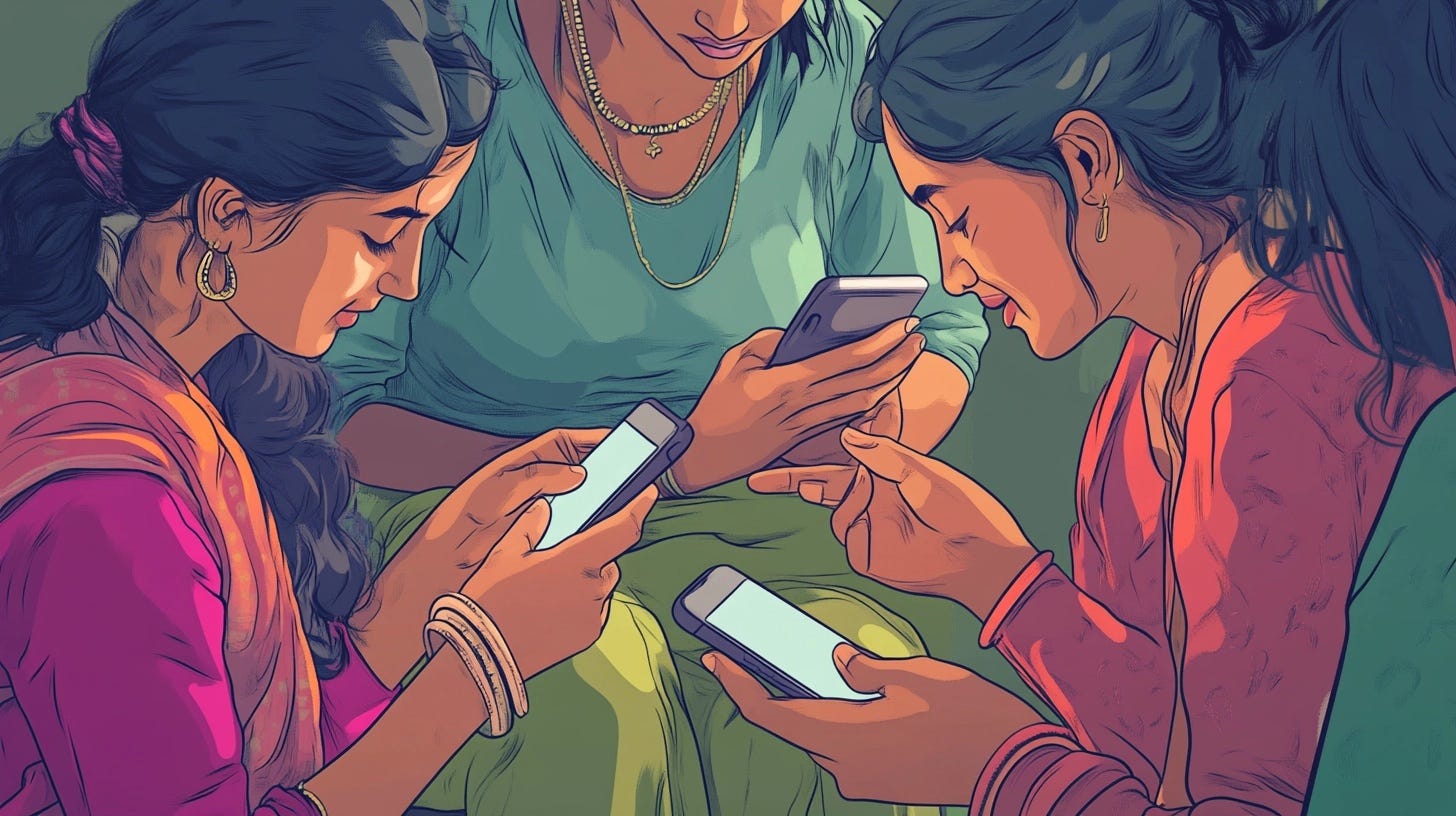For the first time in history, a villager can speak to their phone in any language and unlock life-changing opportunities. AI is that revolutionary, it doesn't ask people to learn technology; the technology learns people. Through voice, text, and images, 4 billion people at the bottom of the pyramid can now access not just information, but transformative resources and guidance. No literacy needed. No apps to master. The technology finally speaks human and that changes how we can empower billions
Imagine what this means: a farmer can show AI a diseased crop and get instant expert guidance. A mother can describe her child's symptoms in her native dialect and receive medical advice. A street vendor can learn business strategies through simple conversation. A child without access to schools can have a patient, ever-present tutor.
How do we ensure the benefits of this collective intelligence is made accessible to everyone?One way is to have on device AI made available to the remotest parts of the world so people can access knowledge even without the internet. But this approach for now is not as scalable since running models at the edge is expensive for most people. The other more practical way is to use the magic of the internet and the fact that connectivity is reaching even the remotest parts of the world to connect people with Sovereign AI, models run by governments for the people.
The Path to Universal AI Access
To really unlock AI's potential for all, every country needs its own sovereign AI - a model built by the nation, for the nation. Imagine an AI that deeply understands its people's context, culture, and aspirations, speaking their languages and dialects, grasping their unique challenges.
Here's where it gets powerful: using retrieval-augmented generation (RAG), these models can tap into both personal and government data, creating a personalized guide for every citizen. Not just information - but practical, actionable advice tailored to each person's specific situation.
Take India's example. With Aadhaar—the world's largest digital identity program—covering 93% of its 1.4 billion population, the potential for personalized services is unprecedented. A rural farmer asks in her native language about increasing income, and the AI, through her Aadhaar-linked profile, instantly identifies relevant subsidies and local agricultural programs. A migrant worker, with just a biometric scan, unlocks personalized recommendations for everything from education to housing.
The true power of AI isn't in serving those already well-off, it's in uplifting billions who need it most. As a government-led public good, it could be subsidized or free, just like education or healthcare. Imagine AI-driven support for healthcare, business advice, or education becoming as accessible as a public service. This is what a real AI revolution looks like.
BharatGPT is a generative AI platform designed specifically for India’s linguistic and cultural diversity. Supporting over 14 Indian languages across text, voice, and video, it enables the creation of multilingual virtual assistants in various formats. BharatGPT embodies the Indian government’s vision: “Make AI in India, Make AI work for India,” keeping data within the country and respecting data sovereignty.
When citizens, regardless of literacy, education, or income, can access guidance in their own language, we begin to dismantle barriers that have historically kept billions out of the digital economy and away from essential opportunities.
AI isn’t just about providing information; it’s about transforming knowledge into opportunity, policy into impact, and human potential into real progress. As more nations build AI systems that understand local contexts and speak the languages of their people, we go beyond digitizing government services. We’re opening doors to human potential on a massive scale. This is the true promise of AI: not to merely serve the privileged few but to empower those who have been excluded for far too long.
I'm writing tons about AI and how it accelerates social impact. Subscribe to my newsletter on LinkedIn for weekly posts. For any questions feel free to reach out.


